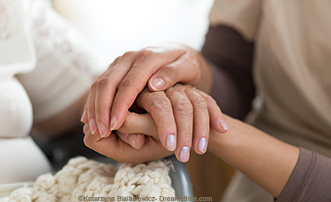Alzheimer’s disease affects more than just memory. According to the Alzheimer’s Association, living with this disease can also cause changes in orientation to time and place, decreased sound judgment, sensory changes including vision, feeling, hearing, etc. The combination of these changes in daily functioning can create some situations and circumstances that might suddenly make our life-long home a danger to our loved one living with Alzheimer’s disease or other types of dementia.
Many people living with Alzheimer’s disease or other dementias can remain successfully and safely in their homes. There are things we can do and small changes we can make in our homes that can make BIG differences—and potentially can be the reason your loved one is able to remain safe and secure in the comfort of their homes.
Some simple things to watch out for:
• Make sure there is proper lighting in places your loved one is spending time
• Keep items out of reach/sight that could be a danger (i.e. knives, lighters, lit candles, scissors, weapons, etc.)
• Keep the floor and walking space clear of clutter to avoid trips and falls
• Keep medications and toxic cleaning products in a locked area
• Excessive noise in the home or outdoors can cause confusion and/or agitation
• In the winter months, ensure sidewalks and driveways are cleared and salted
More advanced safety considerations:
• Install secure locks or alarms on doors and/or windows
• Add hand rails or grab bars along the hallways and walkways
• Consider automatic/sensor lights in rooms and outdoors
• Invest in safety knobs and automatic shut-off features on appliances
• Install walk-in showers and tubs for safe bathing
Keep in mind, these are only a few suggestions and there are many more out there! As always, be patient and understanding of your loved one’s needs and concerns. An environment that is physically and emotionally safe for your loved one can create a calm, secure, and trustworthy space so your loved one can remain in their home and community for as long as possible.
If you would like to learn more or have questions about how to create a safer environment for your loved one with dementia, please call the ADRC at (920) 448-4300.
Sources:
www.alz.org/care/alzheimers-dementia-home-safety
www.nia.nih.gov/health/home-safety-checklist-alzheimers-disease




